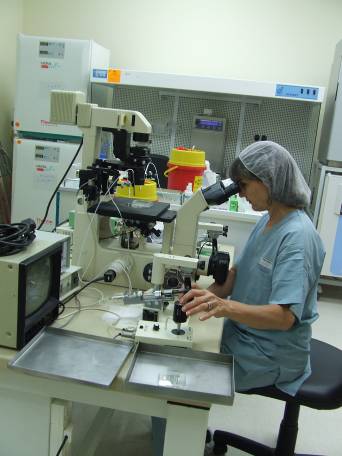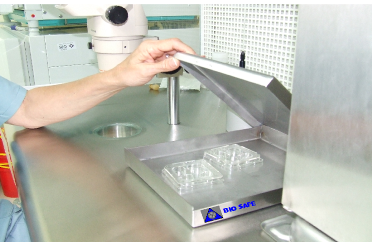
|
We improve performances in hospitals, clinics and laboratories |
|
techno egineering |
äîëåï ìáãé÷ú áéöåòéí åç÷ø äëùì |

ãï ìøîï - 0524700780 |


|
Even a good lab can do better!
Growing embryos could be very frustrating. Sometimes we just can't find any logical explanation why rates of success are dropping. Embryos are extremely sensitive. Precaution should be taken when they are exposed to lab environment. Here are some points for concern: VOC - is responsible for lack of success during the first years of any lab life. "Off-gas" process along with a proper ventilation pattern could dramatically reduce the negative effects of VOC on embryo survival. Ultraviolet Radiation: fluorescent lamps, the microscope lamp, sun light are all "contaminated" with UV light spectrum. UV is an excellent disinfectant, but we do not want to disinfect our embryos… Replacing the lamps with truly "UV free" lamps can solve this problem. CO2 quality: compressed gases contain dangerous levels of organic (VOC) contamination. Use of pre –filtered CO2 VOC free, is essential. Magnetic flux: the quiet Killer Is probably responsible for many failures in the" In vitro fertilization" process. Modern equipment contains heavy electronic circuits. Electronic heaters and fans increase dramatically the magnetic flux in incubators and on laminar work tables. Studies showed that embryos in their first 24 hours are most sensitive to magnetic radiation emitted from heated work surfaces and incubators. The embryo might be damaged at as low as 0.1 A/M magnetic field, while the magnetic flux inside some incubators reaches levels as strong as 10 A/M. Until manufacturers will be more aware of that problem you can use a" Embryo Box" that stops the magnetic flux and gives embryos a better chance to develop normally. |





|
order# |










